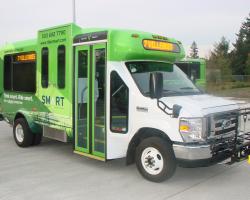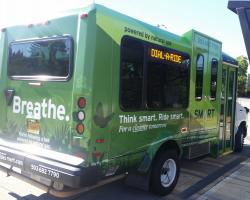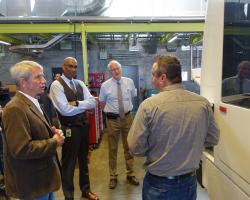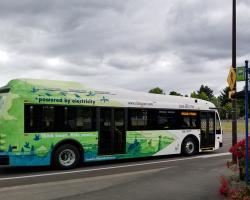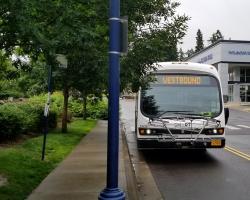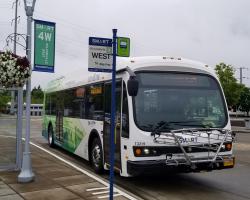SMART Path to Alternative Fuels
Path to purely Alternatives by 2028

Oregon Transit Association Acceptance Award September, 2019
Project Description
Acquisition of 12 additional Lo-No emission buses of various sizes and capacities, along with associated infrastructure, furthers SMART’s efforts to become the first transit agency in Oregon to operate an entire fleet of alternative fuel vehicles, including CNG (Compressed Natural Gas), hybrid, and Battery-Electric buses.
Community Benefits
- Advances SMART and regional/federal goals to reduce use of GHG (Green House Gas)-producing buses for public transit services.
- Cleaner, quieter operation of alternative fuel buses improves community quality of life and reduces pollution.
- Sleeker, more modern buses appeal to younger demographic while providing better service to senior riders
- Reduces operating and maintenance expenses for CNG and Battery-Electric buses.
- Prevents approximately 15.5 million pounds of GHG emissions over the life of the vehicles.
Community Support
The City of Wilsonville - SMART conducted a transit master plan study that included extensive public outreach and 10 advisory committee meetings. Several hundred residents participated in the study over a nearly two-year period. Support by West Linn-Wilsonville School District, Wilsonville Area Chamber of Commerce, Wilsonville Arts & Culture Council, and Wilsonville Seniors.
SMART Advances State/Regional/City Council Sustainability Goals for a ‘Climate Smart Strategy’
Since 2012, Wilsonville’s SMART system has won over $13 million in federal grant funds awarded by FTA or ODOT to support the acquisition of alternative-fuel vehicles and related infrastructure. Over 40% of SMART’s current 31-vehicle fleet is now composed of alternative-fuel vehicles.
Successful 2017 FTA Section 5339c grant funding brought two all-electric buses to the agency in 2019 and an additional electric bus arrived in 2021. SMART is setting the example for urban agencies, large and small, by setting the goal of becoming 50% alternative fuel by 2022 and 100% by 2028.





